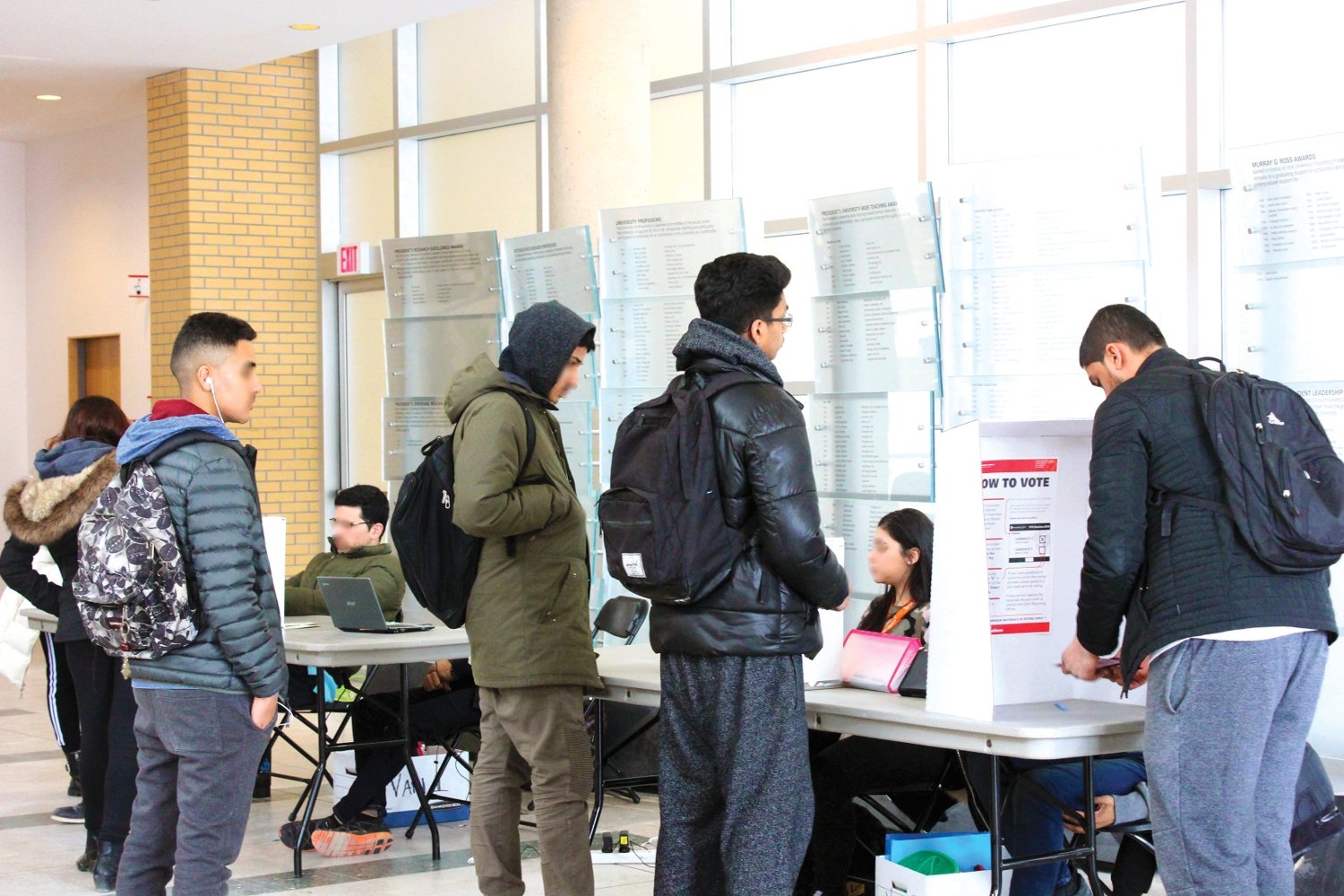Victoria Silman | Contributor
Featured image: Students have expressed a lack of knowledge on how student elections run. | Basma Elbahnasawy
Polling stations will be open across campus from February 13 to 16 to vote for the next representatives of the York Federation of Students (YFS).
When asked about the election process, many students expressed a lack of knowledge on how YFS elections work. Despite this, according to the 2017 YFS Statement of Operations Report provided by the General Assemblies Now Coalition, YFS used $78,475 to fund the 2017 elections, with “the turnout from the last election only around 13 per cent.”
Eleni Tsonis, a fifth-year Visual Arts student, explains: “I feel like I don’t know much about how the elections work, but I know that you have to be a student to elect someone. I’m not sure if you have to be a student to apply to be part of the YFS.”
Clair Robinson, a fifth-year Public Administration student, explains her experiences with student elections: “I think I [voted] once in my first year. They had polling stations, and you checked off who you wanted. The process might be different now.”
There are three major slates running for election: the existing leaders of YFS, UniteYU (formerly Student Action); Momentum; and Team ABC. While the parties may lack representatives for some executive positions, independent candidates are also running to fill those roles, including Mohammad Jabalameli for Director of McLaughlin College, and Artur Setyan for President.
There are five executive positions in YFS: President, Vice-President (VP) Operations, VP Campus Life, VP Equity, and VP Campaigns & Advocacy.
Additionally, there are 17 director positions, including faculty directors and college directors.
The 2018 nomination period for representatives took place from January 24 to February 2, and campaigning is conducted between February 2 to 16.
The election process is undertaken by the Chief Returning Officer (CRO), who oversees the election process by hiring polling clerks, obtaining voter lists from York administration, securing voting space, organizing debates and all candidate meetings, as well as approving all campaign material from the slates, among other duties. They hire and train the Deputy Returning Officer(s)—currently, Xheneta Iseni and Shahzain Feroze—to assist in these tasks during the election period.
The CRO is also responsible for administering demerit points to slates when violations are made, based on campaign by-laws, which could result in the dismissal of certain representatives. By-law violations include, but are not limited to: limited quantities of campaign posters per slate representative, overlapping campaign materials of incumbent slates, and campaigning too close to polling stations.
Current CRO Mohammad Bilal Nisar says: “I got involved in the YFS elections by applying for the job. I was interviewed by the Elections Committee, and then I was recommended to the board.”
The Elections Committee consists of the Executive Director (Chair), two Members of the Board, and the CRO.
A spokesperson for Momentum states: “As for the advertisement of the position, the by-law states that the CRO hiring ‘will be publicized on the YFS website, and the job posting will be advertised for two weeks in a student newspaper.’”
When election polling stations are officially implemented, slates can send scrutineers to ensure a fair election process. Shoshana Pasternak of Team ABC says: “Every year, each party sends scrutineers to monitor the ballot counting process.”
Reiterating this sentiment, the UniteYU team says: “We will be utilizing scrutineers; it’s one of the ways to ensure accountability in our elective system.”
As for online voting, the main concerns appear to be the lack of access to voting by commuting students.
A spokesperson for Momentum says: “Given the ‘commuter school’ nature of York, the thought of going to campus to cast a vote is very inconvenient; add that to the fact that voting on-site takes a lot of personal investment—time—as one needs to wait in line if needed, and get past the sea of volunteers looking to last-minute ‘convince’ you to vote for their slate.
“For context, all college councils at York already have elections via e-vote.”
Pasternak agrees that “online voting is more democratic, more environmentally-friendly, and is more convenient for all voters.”
As for students, online voting would be essential for student involvement. As Gazal Amin, a fourth-year Political Science student says: “Students don’t know about the process, and students who aren’t on campus have a hard time voting.”




